
NEWS & UPDATES

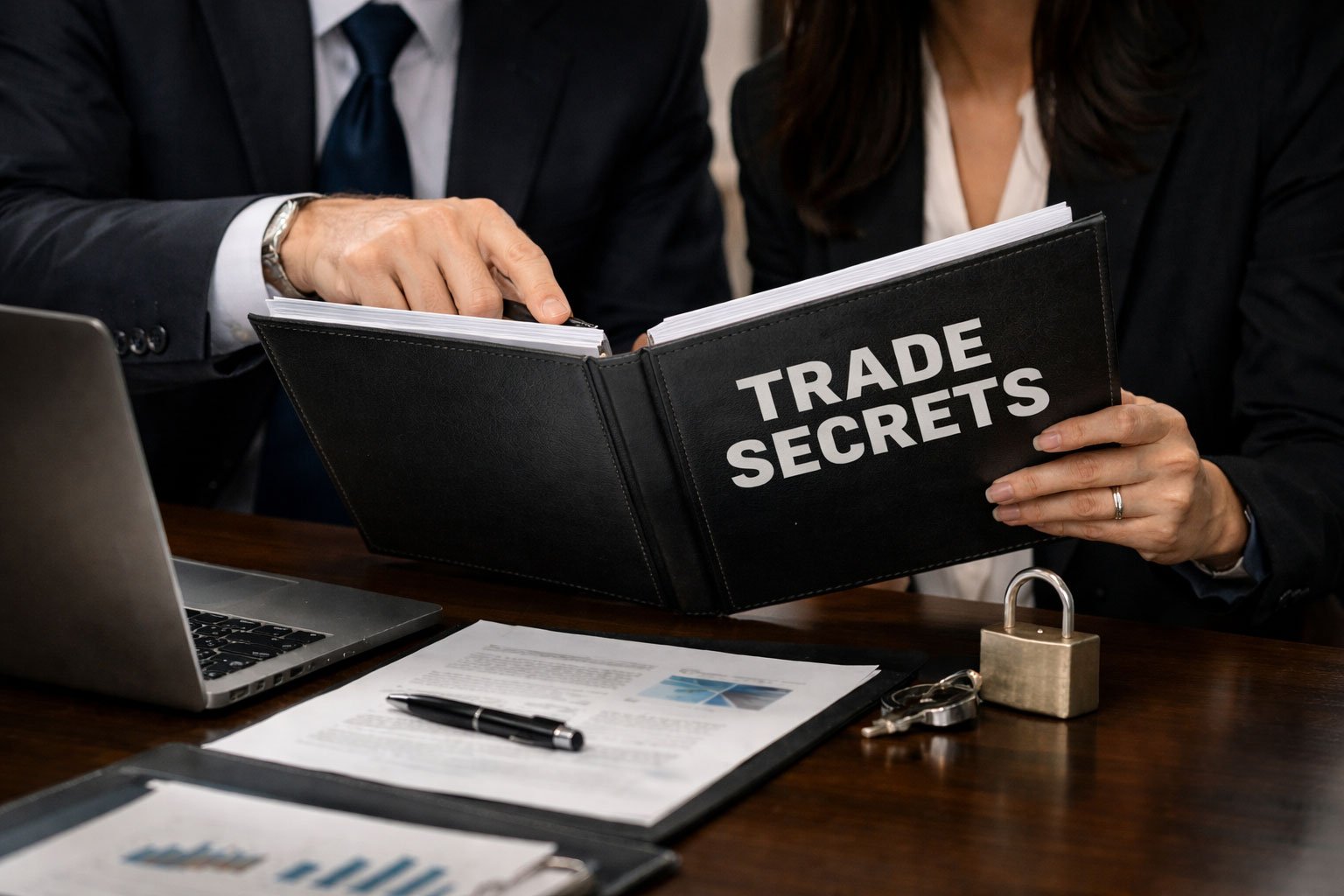
A New Partnership Focused on Trade Secret Litigation Financing
Congratulations to Tangibly and SIM IP on their new partnership! This piece takes a look at what this could mean for companies that generate intellectual property and take protecting it seriously.

2026 Patent Fee Schedule: New Service for AI-Assisted Applications
We have updated our Patent Fee Schedule for 2026 with a new offering for early-stage companies: professional preparation assistance and filing of a US Provisional Patent Application for inventors who would like to generate their own application draft using a generative-AI tool like Idea Clerk.

The Patent Eligibility Requirement of 35 U.S.C. Section 101: A Series (Fifth Post)
FIFTH POST:T he conclusion of this Series on the dual approach to the Alice/Mayo Test, and its impacts and implications on the US patent system and intellectual property owners.

The Patent Eligibility Requirement of 35 U.S.C. Section 101: A Series (Fourth Post)
FOURTH POST: I had intended to take a break from this Series, but recent events require attention, as the disastrous dual approach the Alice/Mayo Test continues to wreak havoc on US patent rights.

2nd Annual Intern Alumni Event
Last week we had the privilege of hosting a memorable event

The Patent Eligibility Requirement of 35 U.S.C. Section 101: A Series (Third Post)
THIRD POST: The Divergent Competencies Problem – A discussion of how the current dual approach to the Alice/Mayo test has a structural flaw that is wreaking havoc on U.S. Patent Rights.
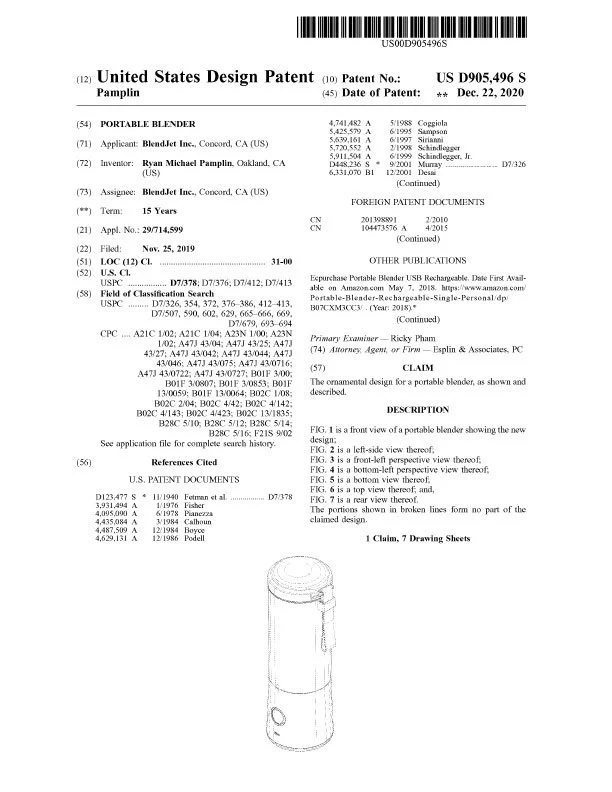
Is It Worth Filing For Design Patent Protection? What Inventors Should Know
If you have ever come up with a product or design and thought, “Someone must have already invented this,” or “It’s probably too expensive to protect,”—you’re not alone.

The Patent Eligibility Requirement of 35 U.S.C. Section 101: A Series (Second Post)
Part 2 in a series on how the United States dual (or dueling?) approach to the Supreme Court’s Alice/Mayo test for subject matter eligibility under Section 101 has a fundamental structural flaw that at least partially explains why this judicially-created doctrine in patent law has been so catastrophic.

The Patent Eligibility Requirement of 35 U.S.C. Section 101: A Series (First Post)
This is a short explanation of how the United States dual (or dueling) approach to the Supreme Court’s Alice/Mayo test for subject matter eligibility under Section 101 has a fundamental structural flaw that at least partially explains why this judicially-created doctrine in patent law has been so catastrophic.
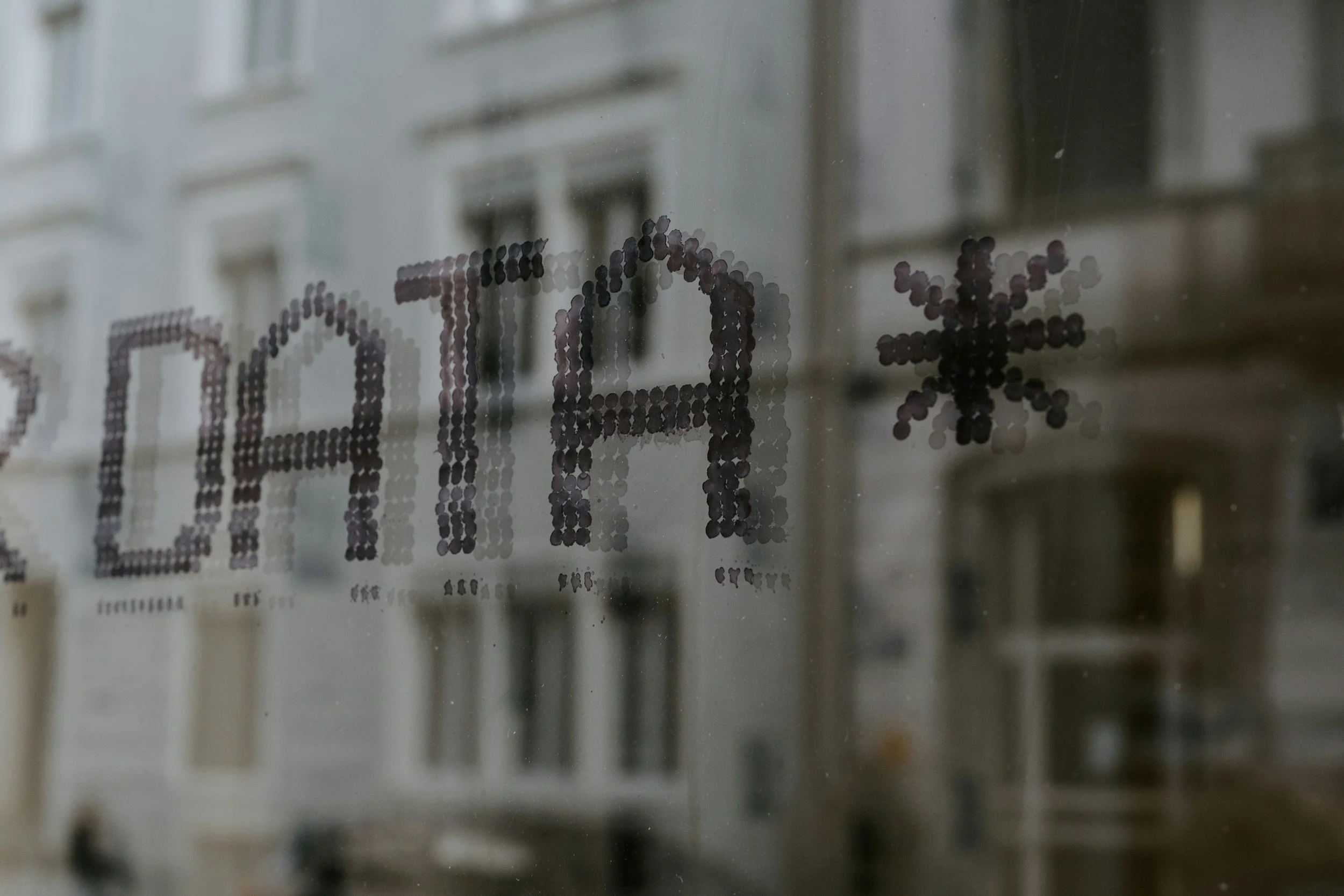
Protecting the Data Advantage: Why Trade Secrets Programs Are Essential for Data-Driven Technology Companies
Data-driven technology companies face a critical risk shift as they mature—from proving market value to protecting their innovations from competitors—making trade secrets programs essential for safeguarding the proprietary data sources, AI methodologies, and analytical processes that drive their competitive advantage in the $14.4 billion data monetization market.

No New Taxes: Why the Department of Commerce’s new fee proposal for patent holders would be a big mistake.
A newly-proposed value-based patent fee could stifle innovation and drive inventors away from the U.S. system.
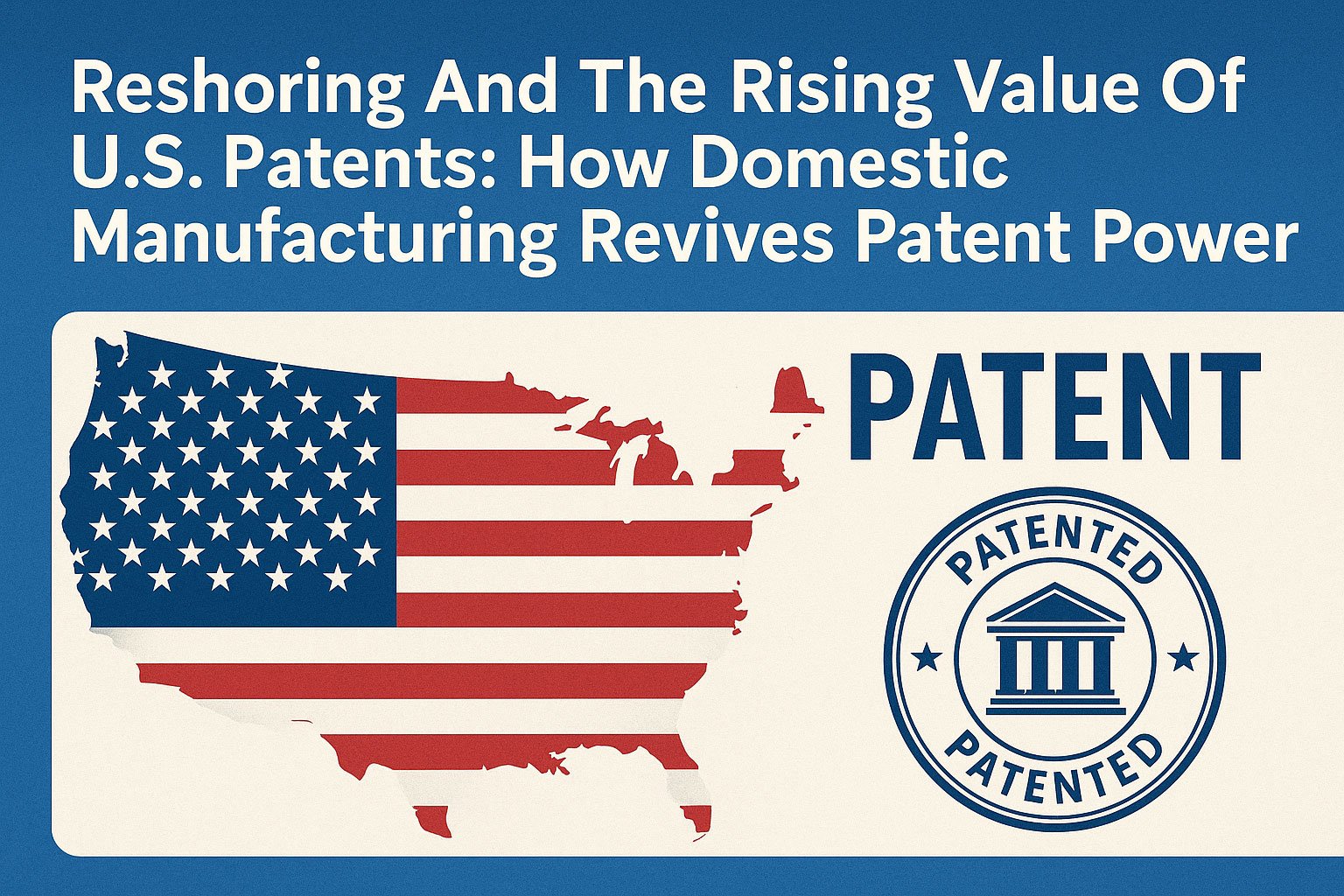
Reshoring And The Rising Value Of U.S. Patents: How Domestic Manufacturing Revives Patent Power
As U.S. manufacturing returns under new federal policies, the relevance and enforceability of American patents will undergo a resurgence. We explore how reshoring amplifies patent value and enforcement leverage, shifting the strategic landscape for innovators and IP owners.

Esplin & Associates Obtains Positive Result in Federal Circuit Appeal
Better late than never - Finally after an appeal to the Federal Circuit is initiated, the USPTO acknowledges improprieties in a PTAB decision.

101 South – A quick roundup of Patent Eligibility news
The first in a series of periodic updates on the status of the Patent Eligibility Requirement of (allegedly) 35 U.S.C. Section 101, and in particular the exception for "abstract ideas.

Intellectual Property Capture
Forming a comprehensive intellectual property strategy includes capturing intellectual property rights for the company
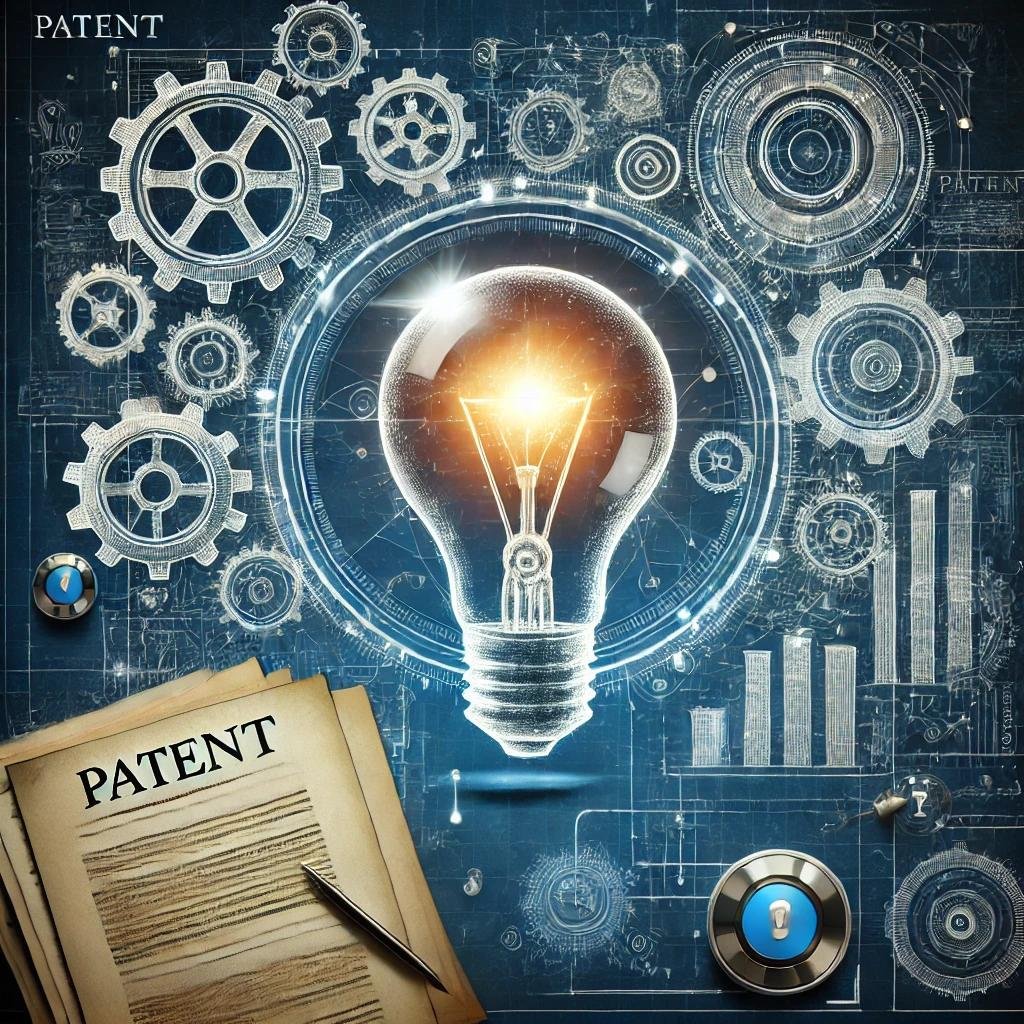

Transition of Leadership at the USPTO
A new incoming Director to be appointed at the USPTO

New USPTO Fees For Continuation Applications With Older Priority Dates
New USPTO Fees will have a chilling effect on continuations being filed in patent families with older priority dates
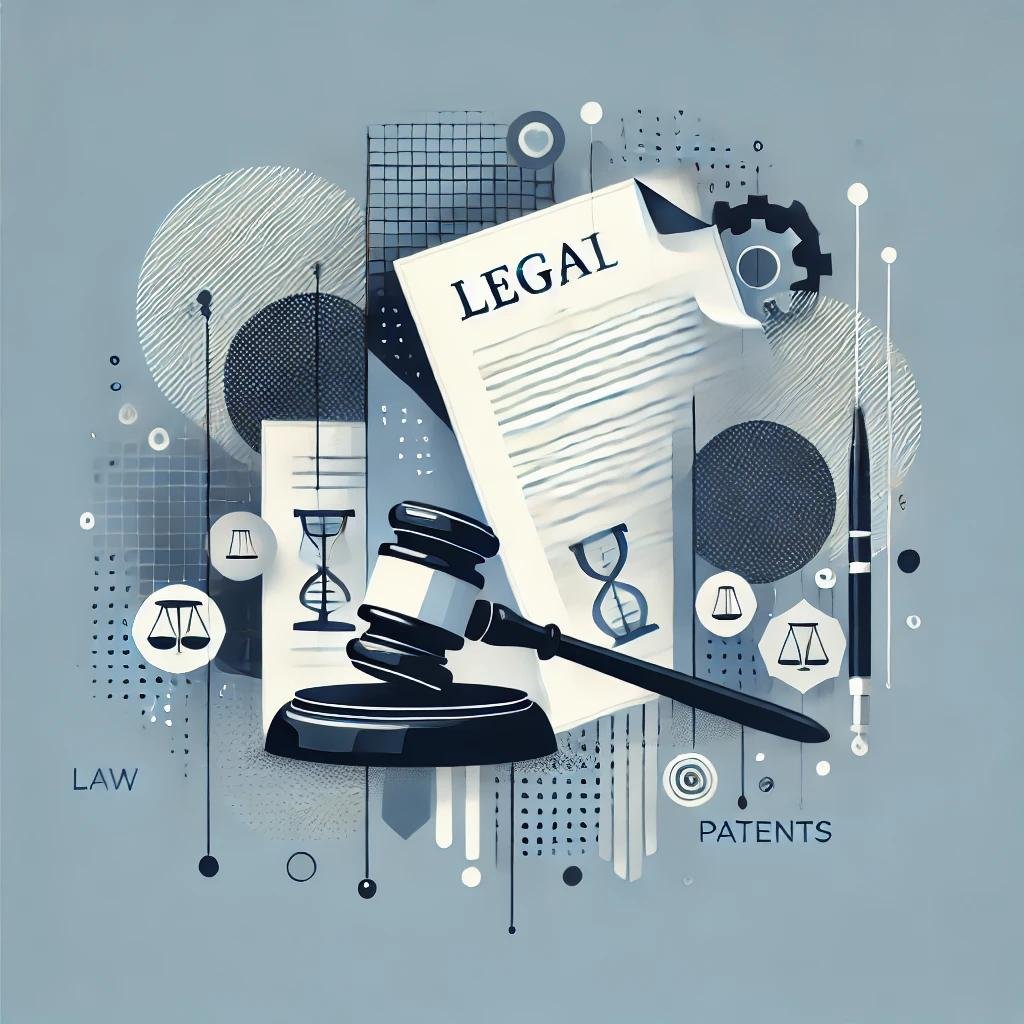
USPTO Backs Off On Proposed Rule Regarding Terminal Disclaimers
Earlier today, the USPTO withdrew a proposed rule that would have dramatically effected the relatively common practice of filing a “terminal disclaimer” to overcome a judicially-created rejection commonly known as “obviousness-type double patenting.

The Case Against Provisional Patent Applications
A Provisional Patent Application may ultimately cause intellectual property rights to be compromised, rather than protected.
